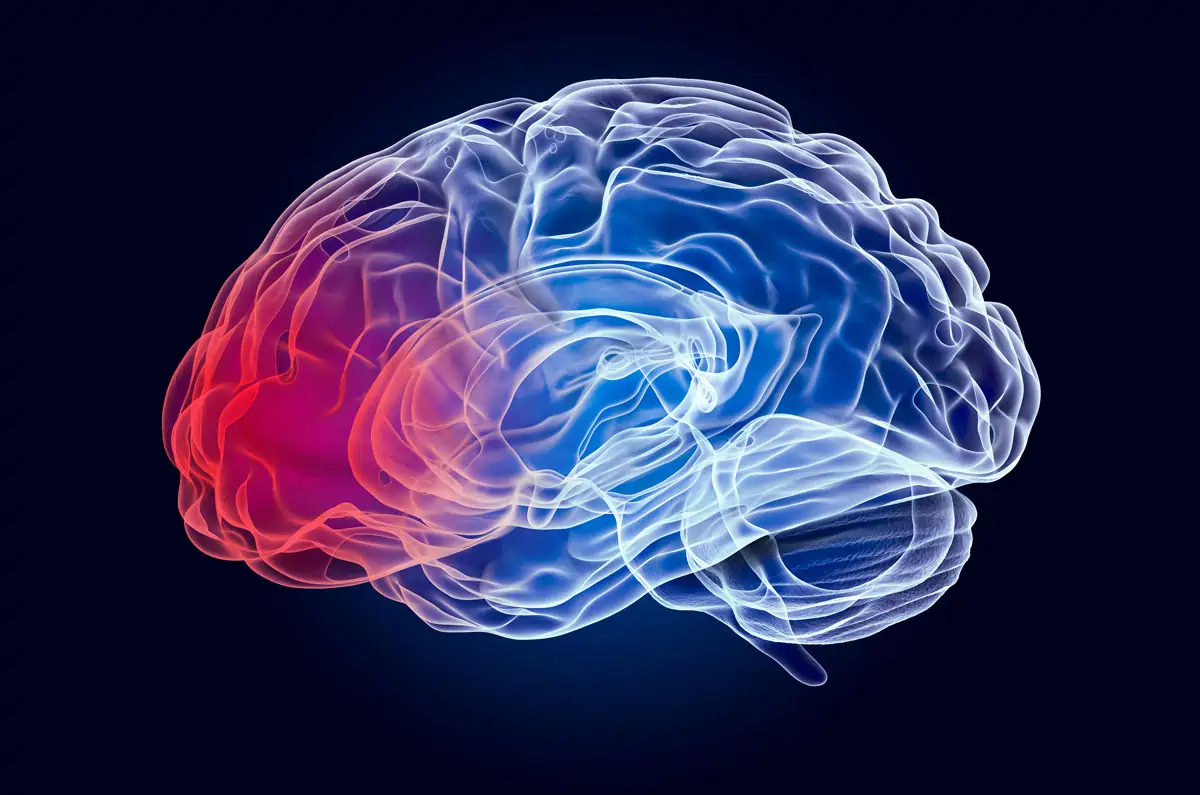Anxiety Disorders

Occasional anxiety can be experienced on a daily basis as a normal part of life. Unexpected issues may arise at work and school that result in apprehension. Or we may feel unsure before making an important decision. For those with an anxiety disorder, the temporary feelings of unease don’t cease. Instead, they can grow worse over time and interfere with work, school, and personal relationships. Anxiety disorders include phobias, panic disorders, and generalized anxiety disorder.
Generalized Anxiety Disorder (GAD)
Individuals with GAD display excessive anxiety or worry about many things, including personal health, work, social interactions, and everyday life tasks for most days over a six-month period. Diagnosis of GAD results when these feelings of fear and nervousness occur most days for a span of six months.
Symptoms of GAD include:
- Having trouble concentrating
- Feeling as if the mind goes blank
- Unable to fall asleep or stay asleep
- Irritability
- Muscle tension
- Feelings of worry that are difficult to control
- Feeling restless, on edge, or tense
- Tiring easily during the day
Mental Health Disorders
Other Common Anxiety Disorders
Separation Anxiety Disorder
This is the fear of being separated from significant others and includes the belief that something terrible will happen to them once they are separated. Nightmares or physical symptoms when separation occurs or being alone is common and expected.
Social Anxiety Disorder
A holistic approach provides all of the therapeutic resources required to heal an individual physically, psychologically, and spiritually. Comprehensive treatment for people with co-occurring disorders, including anxiety, should include:
- Psychiatric services and ongoing care
- Medical care(including medication, when appropriate)
- Evidence-based therapies
- Case management
- Family programming and education
- Life skills training
- Spiritual care services
- Continuing care planning
The treatment of co-occurring disorders must take place simultaneously to be effective. Headwaters offers a multidisciplinary, medically intensive treatment program. We address physical and mental well-being, as well as spiritual and psychological needs to improve outcome life quality.
Panic Disorders
Unanticipated panic attacks are intense bouts of fear that come on rapidly. A person with a panic disorder may experience frequent panic attacks that reach their peak within a few minutes. The trigger can be a fearful situation or object and symptoms may include:
- Heart palpitations, including accelerated heart rate or a pounding heartbeat
- Shortness of breath, choking, or smothering
- Feelings of impending disaster
- Sweating
- Trembling (or shaking)
- Feelings of not having any control
Clients worry so much about when the next attack will occur that they avoid specific situations, behaviors, or places they associate with panic attacks.
Phobia-Related Disorders
Extreme fear or aversion of certain things or situations disproportional to the danger posed is referred to as a phobia. People who experience a specific phobia experience intense fear or anxiety in response to certain situations or objects. Some examples include fearing:
- Heights
- Flying
- Animals (such as dogs, snakes, or spiders)
- Blood
Research-based therapies and treatment interventions like those offered at Headwaters have proven effective in treating individuals with phobias. Personalized, integrated, intensive treatment is the key.
Individuals with a phobia may:
- Experience irrational fear of coming into contact with the object
- Avoid the feared object or situation
- Endure unavoidable situations and objects with intense anxiety
Those who have agoraphobia have an extreme fear of two or more of the following situations:
- Being in a crowd or standing in a line
- Taking public transportation
- Enclosed spaces
- Open spaces
- Being alone outside of the home
In extreme cases, clients who suffer from agoraphobia can become housebound as they tend to avoid embarrassing situations, or places where they might be unable to leave if they have a panic attack.
Anxiety Disorders and Substance Use Disorders
Anxiety disorders can lead to co-occurring substance use disorders. Self-medication is common, and these clients often develop substance use disorders. Drugs and alcohol provide a temporary escape from negative thoughts, but long-term use can exacerbate symptoms. But withdrawal symptoms may be more pronounced and include higher levels of nervousness, agitation, restlessness, insomnia, irritability, and obsessive fears.
Integrated Treatment Is Key for Addressing Complex Co-occurring Disorders
A holistic approach provides all of the therapeutic resources required to heal an individual physically, psychologically, and spiritually. Comprehensive treatment for people with co-occurring disorders, including anxiety, should include:
- Psychiatric services and ongoing care
- Medical care(including medication, when appropriate)
- Evidence-based therapies
- Case management
- Family programming and education
- Life skills training
- Spiritual care services
- Continuing care planning
The treatment of co-occurring disorders must take place simultaneously to be effective. Headwaters offers a multidisciplinary, medically intensive treatment program. We address physical and mental well-being, as well as spiritual and psychological needs to improve outcome life quality.

Headwaters Center for Brain Recovery
Co-occurring disorders can aggravate each other, which can make successful treatment difficult. Headwaters Center for Brain Recovery (CBR) provides specialized, evidence-based therapy interventions to address brain health. Headwaters CBR addresses the link between addiction and mental health disorders and provides treatment for both conditions for a better chance at lasting recovery.
At Headwaters CBR, we provide intensive psychological testing such as:
- Personality Inventory for DSM-5—Brief Form (PID-5-BF)
- Central Nervous System Vital Signs (CNS VS)
- Minnesota Multiphasic Personality Inventory-2 (MMPI-2)
- Millon Clinical Multiaxial Inventory (MCMI)
- PsychEval Personality Questionnaire (PEPQ)

People Can and Do Recover
While a cure for mental health disorders, including addiction and anxiety, does not exist, many individuals go on to lead lives filled with hope and courage. Individuals with anxiety disorders are able to recover with long-term support and therapeutic interventions.
Headwaters recognizes that co-occurring mental health and substance use disorders are interrelated and require concurrent treatment. Start your journey by calling 561-270-1753.
West Palm Beach, FL 33407
Follow Us On:

